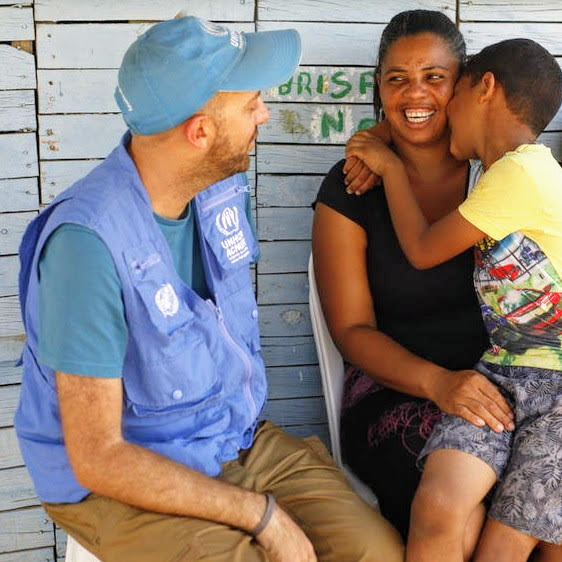Venezuelan Migration: Socio-Economic and Vulnerability Profiling of Persons of Concern, 2019
Brazil, 2019
Get MicrodataIdentification
UNHCR_BRA_2019_SEVA_v2.1
Venezuelan Migration: Socio-Economic and Vulnerability Profiling of Persons of Concern, 2019
| Name | Country code |
|---|---|
| Brazil | BRA |
As of July 2019, it is estimated that over 4,054,000 Venezuelans have left the country and approximately 168,357 have either requested asylum or temporary residency in Brazil, mainly in Roraima state and progressively in the city of Manaus in Amazonas state. Utilising an Area-Based Approach, REACH collected localised information on the situation of Venezuelan asylum seekers and migrants living in host communities and abrigos managed by humanitarian actors in city neighbourhoods across Boa Vista, Pacaraima and Manaus. The aim was to increase the understanding of humanitarian actors of the living conditions, primary needs, vulnerabilities and coping strategies of the asylum seekers and migrants.
This study aims to provide a representative overview of the profiles of Venezuelan asylum seekers and migrants living in different geographic locations and shelter settings in Brazil, for the purpose of increasing the understanding of humanitarian actors as to the extent to which the living conditions, needs, and vulnerabilities of Venezuelan households vary between households living in abrigos and those living in host communities, across three cities that are relevant nodes in the Brazilian refugee response: Pacaraima, Boa Vista, and Manaus. The findings indicate that challenges related to accessing services are relatively similar across different locations and shelter settings. The findings indicate that challenges related to accessing services are relatively similar across different locations and shelter settings. Of all services, Venezuelans seem to face the most challenges regarding access to education; findings suggest that a lack of required documents and a limited local capacity are constraining the enrolment of Venezuelan children into local schools. These two factors were also the most likely to pose barriers to accessing social services and healthcare facilities. Difficulties in speaking the local language and long distances to facilities were found to further constrain households' access to services, albeit to a lesser extent.
Sample survey data [ssd]
Household
Version
v2.1: Edited, anonymous dataset for licensed distribution
Scope
The scope includes:
- demographic and socioe-conomic profiles of Venezuelan PoCs
- access to services
- priority needs
- coping mechanisms
- protection risks
| Topic |
|---|
| Livelihood & Social cohesion |
| Basic Needs |
| Education |
Coverage
Pacaraima, Boa Vista, and Manaus.
Households living in shelters.
Producers and sponsors
| Name |
|---|
| REACH |
| UNHCR |
Sampling
A master list of households resident within each abrigo was requested from the relevant site manager.
The requested dataset required the following fields:
- Tent location (Sector / Tent Number) to facilitate locating selected households;
- Household composition (number of household members, age, sex, focal point y/n);
- Individual and/or Group ID to facilitate secondary data verification to ProGress dataset (if necessary).
The dataset from each abrigo was merged into one master list. Each household within the master dataset was allocated with a consecutive number and households were selected using a random number generator. A total of 1119 households were interviewed.
Data collection
| Start | End |
|---|---|
| 2019-04-15 | 2019-06-07 |
| Name |
|---|
| REACH |
All interviews conducted as part of this research were performed face-to-face using a structured questionnaire (HHIs) or semi-structured questionnaire (KIIs and FGDs). Data from HHIs and KIIs was logged on mobile devices using KoboCollect as the default data collection tool. Once interviews were conducted and the forms were finalised by enumerators, these were uploaded to the server and deleted from the device. All FGDs involved 2 field officers. One officer mediated the conversation whilst the other was in charge of taking notes of the information shared by PoCs. All data collected was debriefed in apposite debriefing tools in excel. The debriefing process involved the field officers reviewing answers to questions together with an assessment officer that had not participated in the interview.
Data Access
Please, cite as follows:
REACH, UNHCR (2019). Brazil, Venezuelan Migration: Socio-Economic and Vulnerability Profiling of Persons of Concern, 2019. Accessed from: https://microdata.unhcr.org
Contacts
| Name | Affiliation | |
|---|---|---|
| Curation team | UNHCR | microdata@unhcr.org |
Metadata production
2022
Metadata version
v1.0
